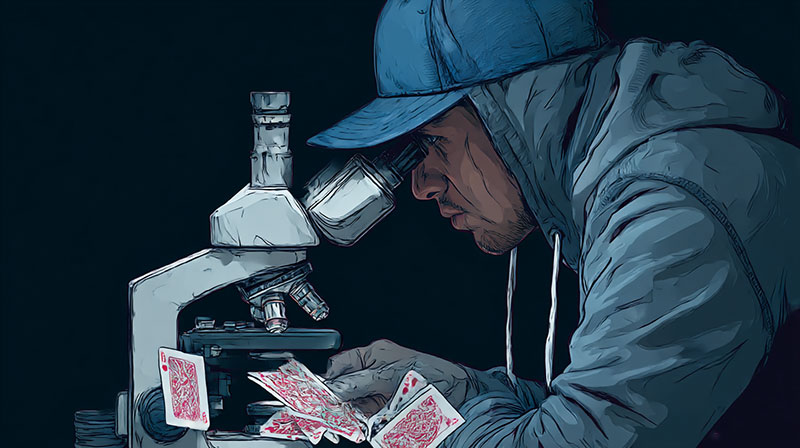You are Now Starting: Unit 3 – Post Flop Strategy
During this unit we are going to look at the actions and thought process that you need to apply after the flop to establish an effective poker flop strategy.
This is a detailed unit, because acting after the flop involves some complex situations and decisions. Take your time working through each lesson, and make sure that you get the practical experience of trying out what you learn when we send you off to the tables.
Post Flop Strategy: It all starts with Flop Analysis
Betting after the flop is a complicated activity. There are so many different scenarios that you have to be able to adapt your decisions according to the situation you are in.
Although it is not possible to give you a black and white action for every scenario, we can lay out some guidelines and examples to help you make decisions after the flop.
Analysing the Flop
The start of the decision process is always to look at what has just been dealt on the flop and consider how it has affected the hand, both for yourself and for your opponents. At this stage, both you and your opponents have now seen 5 out of the 7 cards that go towards making your final hands.
Carefully analyse the 3 community cards that are on the table, and the kind of questions you should be thinking about are as follows:
1. How does the flop help my hand?
We’ve discussed previously about what we are looking for on the flop with each of the different categories of starting hands, has the Flop come up with what we want?
2. Has the Flop helped my Opponent?
We’re also trying to put our opponents on a type of hand by watching their actions and betting patterns, so ask yourself if it is likely that the flop has helped our opponent based on what hands or range of hands we think they might hold?
3. What Draws are on the Flop?
It’s important to recognise the potential draws that are on the board and consider how dangerous a flop it was:
- Flush Draw – Is there a Flush possibility on the flop? ie: if there is 3 cards of the same suit on the flop then someone could have already hit a Flush, if there are 2 cards of the same suit on the flop then someone could have a Flush draw.
- Straight Draw – are all the flop cards close together to give the chance of an opponent holding a straight, or be drawing towards a straight?
Whenever you think your opponent may be on a draw (i.e. needing one more card to complete a strong hand), it’s usually important to make them pay to see additional cards. Giving a free card in this situation is not solid strategy, and can sometimes lead to losing the hand if they catch the card they want on the turn or the river.
The only situation where you might consider this is if you have a much stronger hand than the one you think your opponent is drawing to, and you’re aiming to maximise value by allowing them to improve slightly before committing more chips.
4. Is there a board pair on the flop
Be very wary of a flop which pairs the board, e.g. A 8
8 A
A , this kind of flop opens up a lot of possibilities of strong hands such as three of a kind, or a full house or even four of a kind on rare occasions.
, this kind of flop opens up a lot of possibilities of strong hands such as three of a kind, or a full house or even four of a kind on rare occasions.
Because other players are often wary of a paired board, a bet here can sometimes force folds and win the pot uncontested. This can be a useful tactic, but only if you judge that your opponents are likely to fold. If you are raised or face resistance, this might indicate strength, and you should usually be cautious unless your hand is strong enough to continue.
5. Are you in front?
So after considering all of the above, you should be in a better position to understand what is going on and your position in the hand. Are you likely to be in the lead after the flop with the best hand? Are your opponents drawing to a better hand that you need to protect against? Maybe your hand is very weak compared to hands you think your opponent may hold and it is best to give up on this hand and save any further loss.
If you believe you are ahead after the flop, it’s often wise to bet in order to protect your hand and avoid giving opponents a free chance to improve and overtake you.
